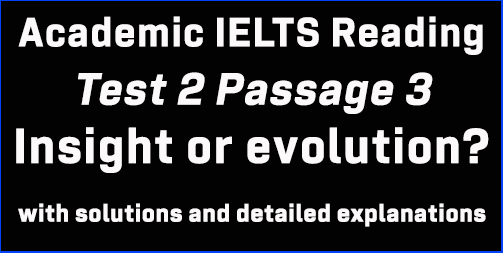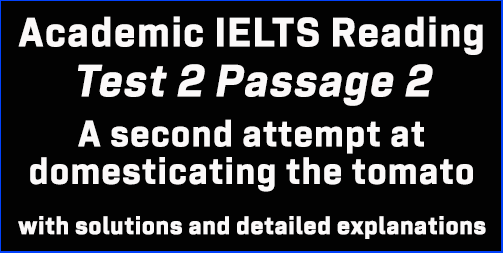IELTS General Training Reading: Cambridge 12 Test 6 Section 1; Lost, Damaged or Delayed Inland Mail Claim Form & Days out for the family; with top solutions and best explanations
This General Training IELTS Reading post focuses on solutions to IELTS Cambridge 12 Reading Test 6 Section 1 that has two texts titled ‘Lost, Damaged or Delayed Inland Mail Claim Form’ & ‘Days out for the family’. This is a targeted post for GT IELTS candidates who have big problems finding out and understanding Reading Answers in the GT module. This post can guide you the best to understand every Reading answer without much trouble. Finding out IELTS Reading answers is a steady process, and this post will assist you in this respect.
IELTS Cambridge 12 Test 6: GT Reading Module
Section 1: Question 1-14
The headline of the text: Lost, Damaged or Delayed Inland Mail Claim Form
Questions 1-7: Completing notes
[In this type of question, candidates are asked to complete different notes with NO MORE THAN TWO WORDS AND/OR A NUMBER from the passage. Keywords are important to find answers correctly. Generally, this type of question maintains a sequence. However, we should not be surprised if the sequence is not maintained. Find the keywords in the passage and you are most likely to find the answers.]
Title of the notes: Claiming compensation from the Royal Mail for lost, damaged or delayed mail
Question no. 1:
Before filling in the form
- go online to learn about their policies or get the _________ that contains the relevant information
Keywords for this question: before, go online, learn, policies, get, contains, relevant information,
In paragraph no. 1 the writer says in the first lines, “Before completing this claim form for lost, damaged or delayed mail you should visit www.royalmail.com to find out all you need to know about our policies. Alternatively you can get the details from our ‘Mail Made Easy’ booklet, available at any local post office branch. .. … .”
Here, Before completing this claim form = Before filling in the form, you should visit www.royalmail.com = go online, to find out all you need to know about our policies = to learn about their policies, the details = the relevant information,
So, the answer is: booklet
Questions no. 2 & 3:
When filling in the form
- refer to the ________ to ensure all the relevant sections are completed
(You can use their 3. _______ to request action if you don’t have enough proof to make a claim.)
Keywords for this question: when filling, refer to, to ensure, all the relevant sections, completed, can use, to request action, if, don’t have, enough proof,
In paragraph no. 1, lines 4-7 say, “ . … . When you fill in the form, make sure you complete it in full, using the checklist that we have provided to help you. If you find that you do not have the evidence required to make a claim but would like us to investigate an issue with your mail service, the easiest way to do this is by visiting our website.”
Here, When you fill in the form = When filling in the form, make sure = ensure, complete it in full = all the relevant sections are completed, using = refer to,
If you find that you do not have the evidence required to make a claim = if you don’t have enough proof to make a claim, would like us to investigate = request action,
So, the answers are:
- checklist
- website
Question no. 4:
When claiming compensation for a lost item
- in the case of a package, include something (e.g. bank statement) to prove its _________
Keywords for this question: when claiming compensation, lost item, package, bank statement, to prove,
The answer can be found in the ‘Lost items’ section, in lines 2-3, “ …. . .. . If claiming for the contents of a package, you also need to provide proof of value, e.g. till item reference number, receipt, bank statement, etc.”
Here, If claiming for the contents of a package = in the case of a package, to provide proof = to prove,
So, the answer is: value
Questions no. 5 & 6:
When claiming for the cost of a damaged item, include
- either the actual item or __________ showing the damage to the item
(You should keep the 6. ________ that was used when the item was originally sent.)
Keywords for this question: When claiming, cost, damaged item, include, either, actual item, showing, damage, should keep, was used, when, item, was originally sent,
The answers are found in the ‘Damaged items’ section. Here, the author of the text writes in lines 2-4, “However, if these are very large or unsafe to post, you may instead provide photographs as evidence of the damage. Please retain the original packaging (and damaged items, if not sent to us) as we may need to inspect them.”
Here, evidence of the damage = showing the damage to the item,
retain = keep,
So, the answers are:
- (provide) photograph(s) / photos
- (original) packaging
Question no. 7:
When to claim
- Delayed items: if you are the ________, you must claim within three months of posting the package
Keywords for this question: when to claim, delayed items, if, you are, must claim within, three months, posting the package,
In the second paragraph of the ‘Time restrictions’ section, the writer says in lines 2-3, “ . . .. Claims for delayed items must be submitted within 3 months of the date they were posted if the claim is made by the sender, or within 1 month of receipt if the claim is made by the recipient of the item.”
So, the answer is: sender
The headline of the text: Days out for the family
Questions 8-14: Identifying information:
[This question asks you to find information from the passage and write the number of the paragraph (A, B, C or D … .. ) in the answer sheet. Now, if the question is given in the very first part of the question set, I’d request you not to answer them. It’s mainly because this question will not follow any sequence, and so it will surely kill your time. Rather, you should answer all the other questions first. And just like List of Headings, only read the first two lines or last two lines of the expected paragraph initially. If you find the answers, you need not read the middle part. If you don’t find answers yet, you can skim the middle part of the paragraph. Keywords will be a useful matter here.]
Question no. 8: At certain times of year you can eat special meals here.
Keywords for this question: certain times of year, can eat, special meals,
In the description of Carrickfergus Castle, lines 2-3 say, “ . . .. During summer, traditional feasts are served, . . . .. .”
Here, During summer = at certain times of year, traditional feasts are served = you can eat special meals,
So, the answer is: A
Question no. 9: Children can get dressed up here.
Keywords for this question: children, dressed up,
Take a close look at the description of Warwick Castle. Here, line no. 2 say, “. . .. Children can even get to try on armour to see how heavy it is. .. . .”
Here, get to try on armour = get dressed up,
So, the answer is: F
Question no. 10: There is another castle in the same area.
Keywords for this question: another castle, same area,
In the description of Pickering Castle, the writer says in the last lines, “ .. . Nearby Helmsley Castle is also worth a visit.”
Here, Nearby Helmsley Castle = another castle in the same area,
So, the answer is: D
Question no. 11: A lot of stories are told about this place,
Keywords for this question: a lot of stories, are told, about, this place,
Take a close look at the description of Glamis Castle. Here, in lines 3-4, the writer says, “ .. . There are many ghost tales associated with this castle, which will capture the imagination of younger visitors.”
Here, many ghost tales = a lot of stories are told, associated with this castle = about this place,
So, the answer is: B
Question no. 12: Part of the castle may be frightening for some children.
Keywords for this question: part, may be frightening, some children,
In the description of Stokesay Castle, the writer says in lines 2-4, “ . .. Children of all ages will enjoy learning at these and there is a guided tour which has been especially designed with younger visitors in mind. Some of them may find the dungeon quite scary though.”
Here, the dungeon = part of the castle, quite scary = frightening,
So the answer is: E
Question no. 13: Plays are performed here during part of the year.
Keywords for this question: plays, performed, part of the year,
Again, in the description of Pickering Castle, the writer says in lines 2-3, “. . . .There are lots of special events too, including a chance to come along and see some plays which are put on during the summer months. .. . .”
Here, plays which are put on = plays are performed, during the summer months = during part of the year,
So the answer is: D
Question no. 14: A guided tour is offered which is particularly suitable for children.
Keywords for this question: guided tour, offered, particularly suitable, children,
Right above the ‘GIFT VOUCHERS’ section, there’s a small note that says,
Again, in the description of Stokesay Castle, the writer says in lines 2-3, “ . .. Children of all ages will enjoy learning at these and there is a guided tour which has been especially designed with younger visitors in mind. . . .. . .
Here, especially designed with younger visitors in mind = which is particularly suitable for children,
So the answer is: E




your blog made Reading easier to learn and understand. Thank you very much.
Thank you!
really appreciate your effort, your work made reading more easier for us,
Please can you share also 2 and 3 sections of test 6th GT book 12
thanks
GT Book 15, Test 6 Section 3 answers explanation plz?
Very useful. You have given the answers with their details. Thankyou for this.
You’re most welcome!